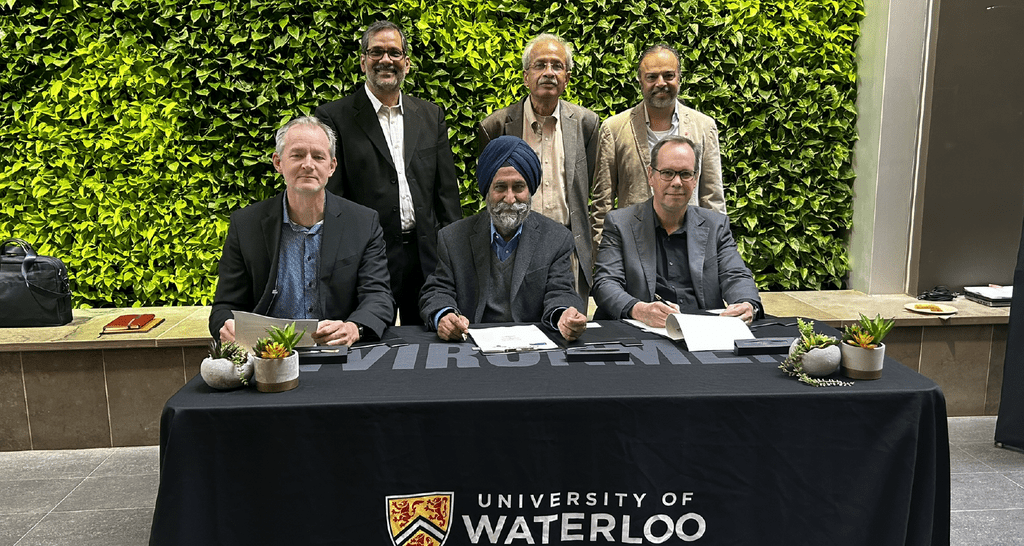Navigating international conferences, insights from undergraduate presenters
By: Izzie Kelly, Corrine Knox-Germans and Sakura MacLean
Estimated reading time: 3:30
The Study for the Association of Play (TASP) conference is one of two international conferences focused on the interdisciplinary field of play studies. The 2024 conference, celebrating its 50th anniversary, was held in Rochester, New York at the Strong National Museum of Play.
While conducting research for our third-year capstone project – a museum exhibit on the value of pretend play – we heard about the conference from one of the experts we interviewed. It was their recommendation that we should apply to present at this conference, something that was very daunting given the quickly approaching application deadline and our unfamiliarity with conferences. Heeding their advice, we applied and to our surprise and delight, we were accepted!
Upon arriving at the conference, we found ourselves to be the youngest presenters and attendees there. We presented on the second day of the conference, so spent the first day listening to other presenters and attending workshops. The interdisciplinary nature of the conference meant there was truly a breadth of knowledge to be acquired. TASP’s primary disciplines are education and psychology, and we attended sessions on everything from play and morality to gender-affirming voice care. As students with diverse interests, we found there was more than enough to engage each of us.
Presenting at a conference is not as different to presenting in an undergrad class as one might expect. In our case, the audience size was comparable, if not smaller, and the room was full of other passionate academics eager to hear what we had to share. Our presentation was titled Play in the Museum Format: Encouraging Make-Believe in Young Adults (PDF) and was about our research and final project for the Knowledge Integration museum course. We focused on a summary of our research and design process, our observations on the reception of the final exhibit, and the academic context in which we were encouraged to pursue this project. We were treated with the same respect, professionalism, and curiosity as our peers across the spectrum of disciplines and experience, which was immensely motivating as young academics.

Izzie Kelly, Corrine Knox-Germans and Sakura MacLean presenting at the conference.
We also had the opportunity to visit the museum hosting the conference, which became another learning experience for us as museum designers. We were able to compare our design decisions with those of a professional museum and were pleasantly surprised to see just how many elements were cut from the same cloth, and to see even more, alternative directions we could’ve gone in.
We hope that our experience at this conference demystifies what a conference can look like and challenges the belief that conferences are just for graduate students and professors. The other conference-goers were not just welcoming of us younger presenters and attendees – they expressed a strong desire to see more students like us at these kinds of events. Conferences are a place for sharing what you know and learning everything you can. Beyond just quantitative research, they can be a place to share initiatives and programs, case studies and projects. We hope our experience is a sign to other students that there is a place for us in academia before Masters or PhDs. Go and share the cool capstone and thesis projects you’ve worked so hard on!
There is, however, a barrier that most undergraduates will face, as we did, which is a lack of conversation around conferences. If not for the happenstance of our interviewing process and immensely supportive faculty members at our disposal, we wouldn’t have had the awareness that such a conference existed, let alone the confidence to pursue the opportunity. Based on our own experience, we have a few suggestions on how to overcome this hurdle:
- When conducting literature reviews/other preliminary research, consider conferences and their associated websites as resources. They often have documentation of past presentations and can give you a sense of what present opportunities might be available in your fields of interest.
- Reach out to professors in your faculty or even just of a class you particularly enjoyed about what conference opportunities are available.
- Find out what financing options can support you. There are sometimes program and faculty funding to help you present at conferences.
To the last point, we’d like to thank the Lewitt Family Foundation for their donations to the KI Experience Award which helped fund our conference experience.

